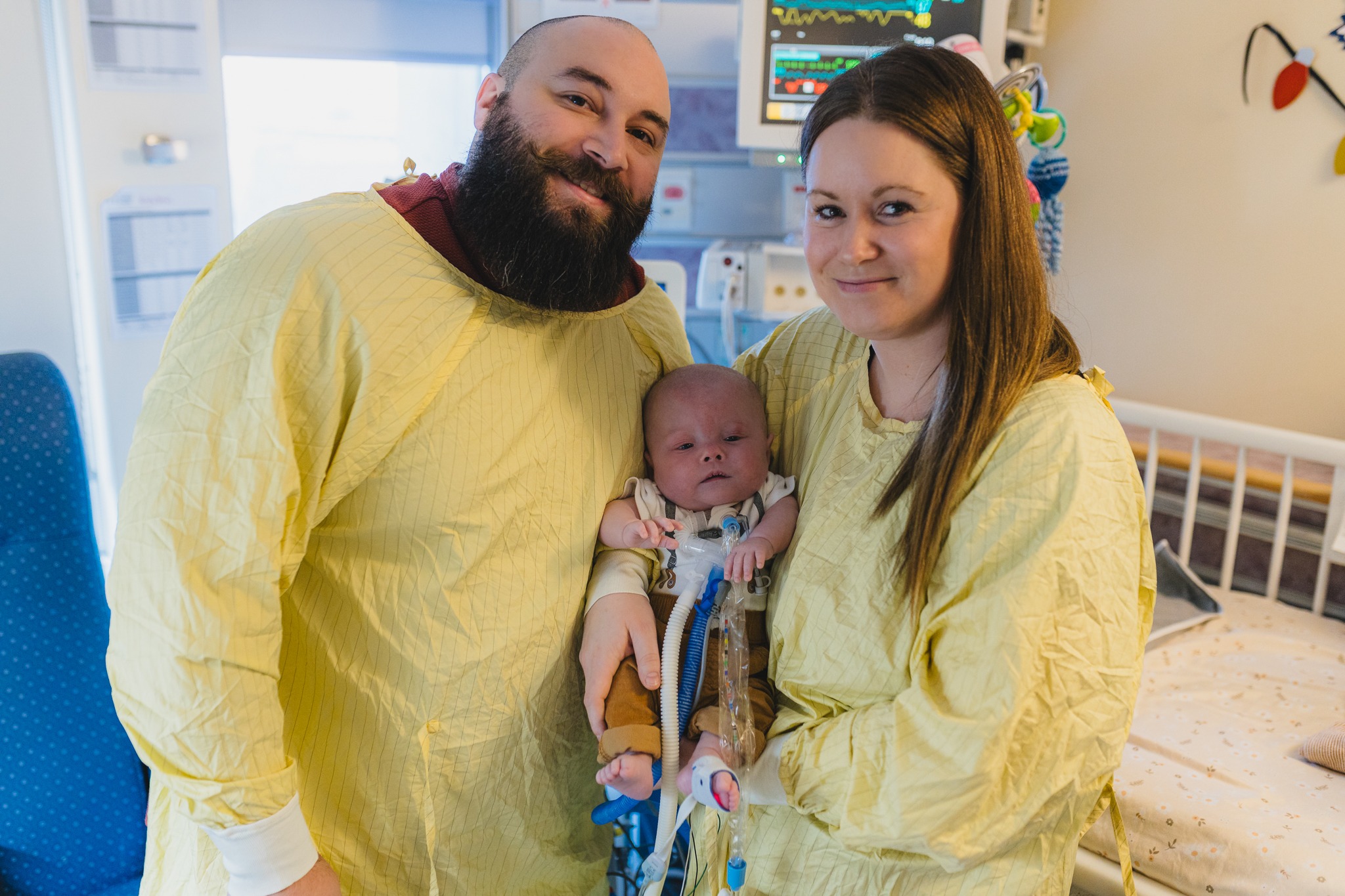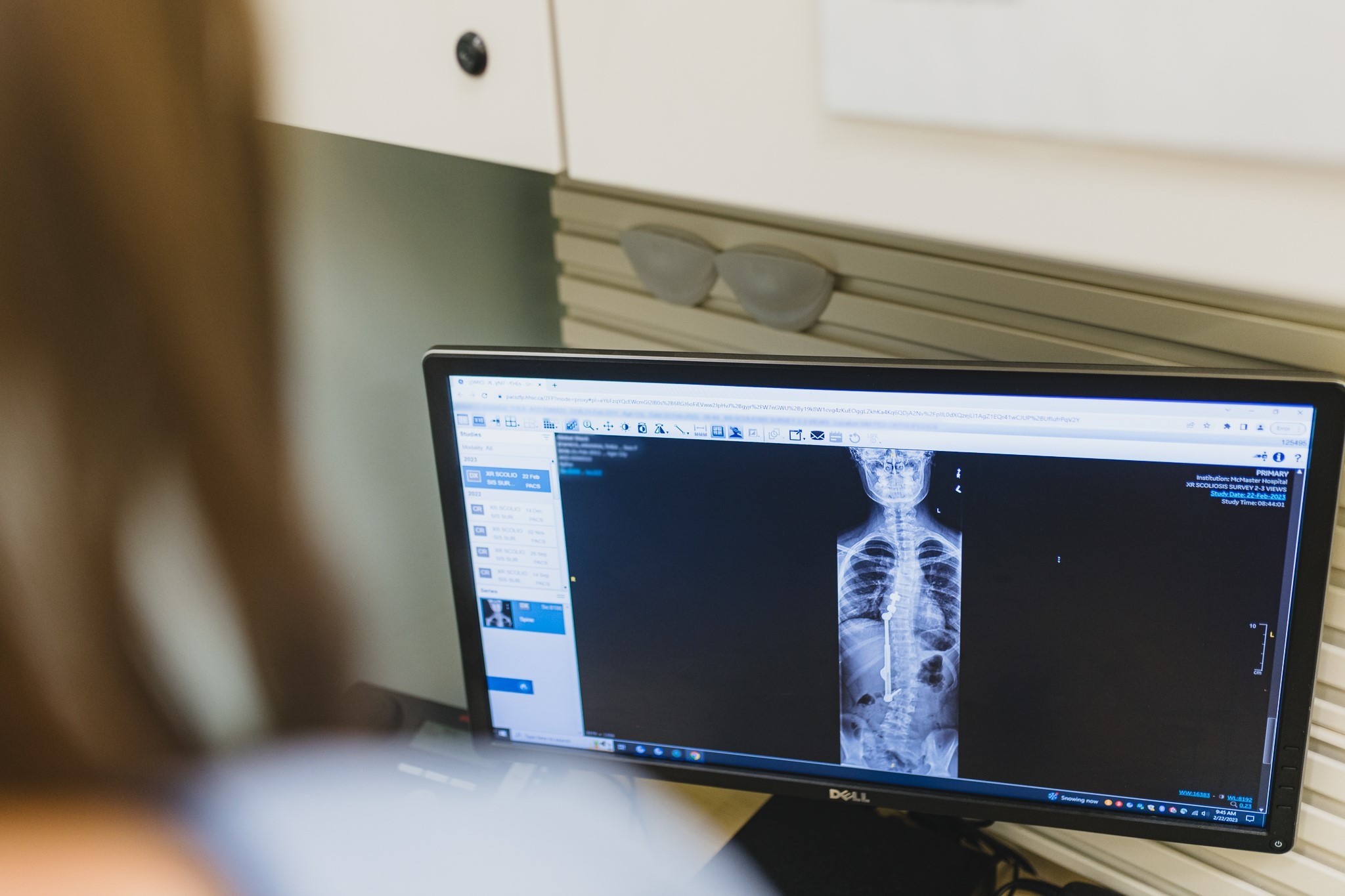
“Thumbs-up” for a smooth surgery
When baby Ryker came into the world in October 2022, his parents noticed a special difference on his right hand – an extra thumb. After being referred by his pediatrician, Ryker and his family met with the surgical team at our Hamilton Health Sciences’ McMaster Children’s Hospital (MCH), where his parents and health care providers decided the best way forward was to remove it.

Baby Ryker’s extra thumb.
Being born with an extra thumb, finger or toe is called polydactyly. It’s relatively common, occurring in about 1 in 1000 children, and sometimes runs in families. When appropriate, surgery can improve both the function and the appearance of this congenital hand difference.
“Ryker was born with an extra thumb and our family doctor put in a referral at McMaster Children’s Hospital to have it removed,” says Sara Milovich, Ryker’s mom. “We had the pleasure of working with Dr. Bain and he was incredible throughout our whole experience.”

Dr. James Bain, Division Head of Plastic Surgery.
Dr. James Bain is a plastic and reconstructive surgeon at MCH and also teaches in the division of plastic surgery at McMaster University.
“Duplicate thumbs aren’t useful and get in the way of normal functions such as writing and grasping,” says Bain. “This extra digit also makes it difficult to wear certain items such as gloves or mittens.”
From Kitchener to Hamilton
Sara and her husband Scott Milovich, who have two other young children, traveled from their home in Kitchener to MCH last July for their first appointment. During their visit, staff took x-rays to determine the bone size in Ryker’s extra thumb. The MCH team determined the best plan for Ryker would be to have surgery after he turned one, to ensure he was strong enough and his lungs were developed enough to deal with the needed anesthesia.
“The appointment went well and Dr. Bain explained the procedure very thoroughly,” says Sara, who also received multiple surgeries at MCH from a young child, although for different reasons. “As a mom who has had many surgeries herself at McMaster, I knew the protocol.”
A quick call back and procedure
When Ryker celebrated his first birthday this past October, Sara reached out to Dr. Bain’s office to coordinate a surgery date. “The nurse stated the surgery would be in the new year, and at the beginning of January I received a call about an opening,” says Sara.
“As a mom, you are always brave for your children. I try not to show my emotions to my children, but I was stressed.”
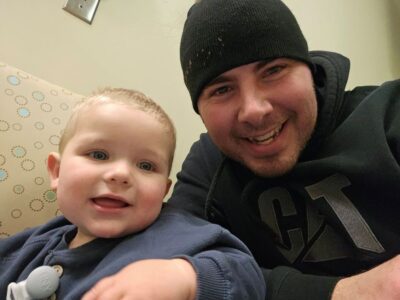
Big smiles before surgery. Ryker and his dad, Scott, snapped a quick photo on the day of surgery.
Ryker’s surgery took place last month, on Jan. 22. “It was a fairly quick surgery and everything went smoothly,” says Sara, who went into the operating room with Ryker after he finished surgery. “As a mom, you are always brave for your children,” she says. “I try not to show my emotions to my children, but I was stressed. Luckily, the nurses and Dr. Bain were amazing and assured me everything was going to be fine. Ryker came out into recovery happy, sleepy, and ready to go home, which made me feel relieved.”
Bain adds, “All these children are special to our team, and this wonderful, caring family is a great example. Seeing the single, straight, mobile thumb is very rewarding.” Bain and his team will see Ryker every three months for a follow-up for the first year after his surgery.
A family history at MCH
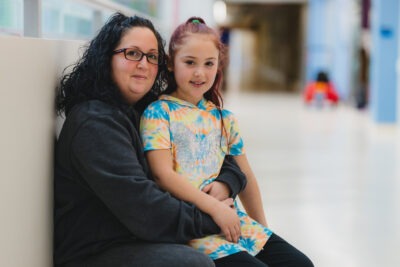
Sara and her oldest daughter, Harper, both underwent surgery at MCH for Pyloric Stenosis when they were young.
Though this was Ryker’s first experience at MCH, the Milovich family were no strangers to the hospital. Their oldest daughter, Harper, underwent surgery for Pyloric Stenosis when she was only three weeks old back in 2017. Pyloric Stenosis is an uncommon condition in infants that blocks food from entering the small intestine. Harper was diagnosed on July 22, 2017, and the day after, on July 23, she had her surgery at MCH. “That surgery was nerve-racking as she was only three weeks old, but the surgery team and the nurses on the ward were fantastic,” says Sara.
Sara had the same surgery when she was young. “I had the same procedure done on myself as a baby when I was three weeks old at McMaster,” says Sara. “When I brought Harper in, the doctor told me she was leaning towards Pyloric Stenosis, and I told her I had it when I was the same age. I then learned from her that there will always be a ten percent chance that either of my kids will have it.”
Baby Shark to the rescue
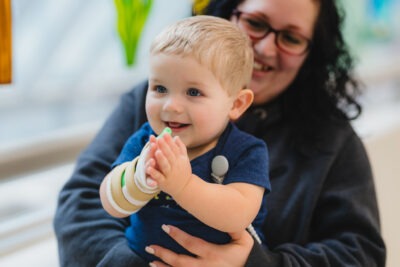
Ryker will see his MCH team for follow-up appointments every three months this year.
Surgeries can be a stressful time for young patients and their families. One of the moments Sara recalls was when Ryker’s anesthesiologist played a familiar song to calm Ryker and create a positive atmosphere in the operating room (OR). “She ended up playing Baby Shark on her phone in the OR to help keep Ryker calm, and out of my view, I could see all the nurses dancing along,” says Sara.
“All the nurses in recovery and same-day surgery were fantastic. I can’t thank McMaster Children’s Hospital enough,” says Sara.

